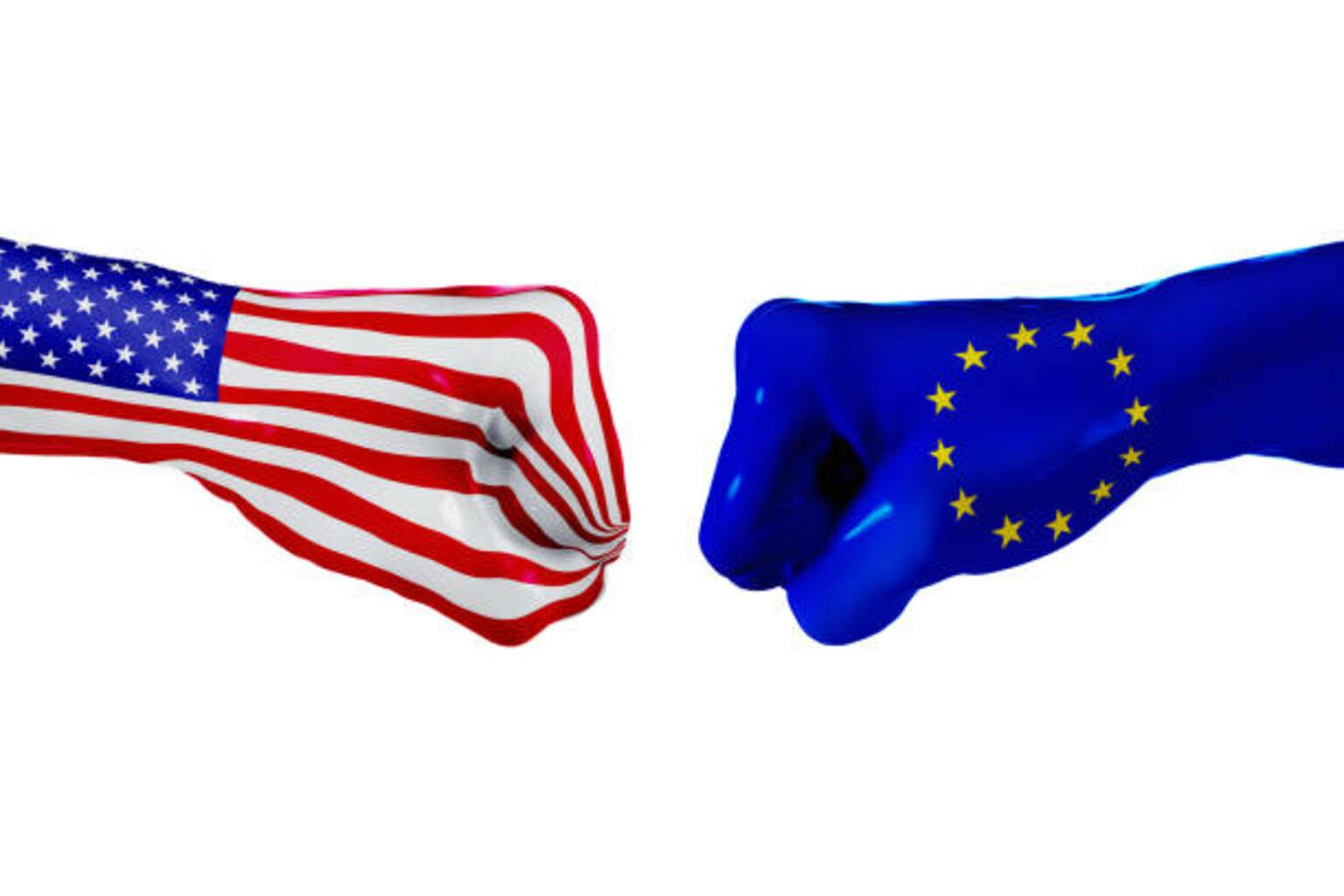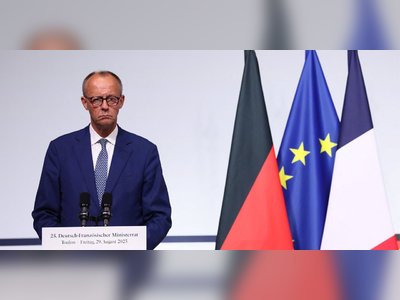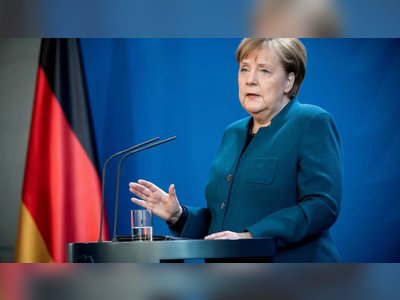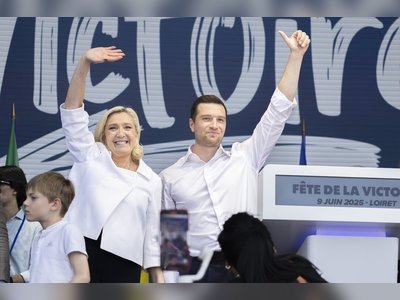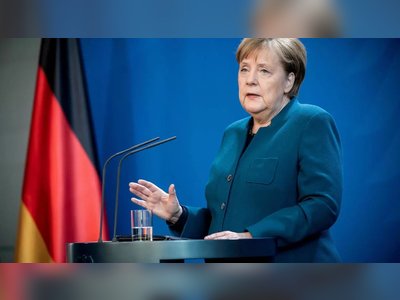European Cosmetic Industry Advocates for Tariff Exemption Amid Heightened Trade Tensions
L'Oréal spearheads initiative to exclude beauty products from EU's planned retaliatory tariffs against the US.
L'Oréal, the French cosmetics powerhouse with a market value approximately at one hundred eighty-eight billion euros, has formally requested that the European Union exempt the beauty sector from impending retaliatory tariffs against the United States.
This initiative emerges as trade tensions escalate, notably affecting the luxury and consumer goods markets.
In March, L'Oréal's CEO conveyed the company’s readiness to adapt to potential tariffs, pointing to its pricing strategies and favorable currency changes due to the strong US dollar.
He articulated that while tariffs are manageable, they should not substantiate a reciprocal trading policy.
Following these remarks, L'Oréal formed a coalition of fifteen beauty firms to formally petition the European Commission, seeking the removal of the beauty industry from a draft list targeting American imports.
The EU had previously drafted a ninety-nine-page document outlining potential tariff targets, originally scheduled to take effect on April 1. However, the European Commission postponed the implementation until April 13 to facilitate further diplomatic discussions with the United States.
In parallel, the French spirits industry has reported threats of US tariffs reaching up to two hundred percent and has advocated for a similar delay.
The cosmetics industry association in France has presented arguments against new tariffs, highlighting trade statistics that indicate France imports approximately five hundred million euros of American cosmetics annually while exporting around two and a half billion euros in personal care items to the US. The broader European cosmetics sector is known to support roughly two million jobs throughout the continent.
Although L'Oréal manufactures about two-thirds of its products sold in the US domestically, internal sources indicate that specific divisions, particularly those related to fragrances and scented items, remain significantly exposed to tariff implications.
A downturn in these segments could adversely affect L'Oréal's financial performance, which is already facing strain due to declining consumer confidence in the pivotal Chinese market.
China constitutes a crucial market for the global cosmetics industry and has evolved into the second-largest market for beauty products worldwide, following the United States.
L'Oréal has reported a continuous decrease in sales in China over recent quarters, including a six point five percent drop in the third quarter of 2024, a three point six percent decline in the fourth quarter, culminating in a total reduction of around four percent for the full year.
The Chinese market accounts for approximately seventeen percent of L'Oréal's overall sales.
Conversely, sales in the US experienced modest growth of one point four percent in 2024.
Over the preceding year, L'Oréal's share price has fallen by about nineteen percent following several years of substantial gains during the COVID-19 pandemic, which saw a surge in demand for premium cosmetics.
Notwithstanding the recent decline, L'Oréal's stock has appreciated by forty-eight percent over the last five years.
In 2024, L'Oréal reported annual revenues of forty-three point four eight billion euros, reflecting a year-over-year growth of five point six percent, with a net profit of six point four one billion euros.
Comparatively, Estée Lauder, its American competitor, is valued at approximately twenty-four billion US dollars, having registered a share price decrease of about fifty-seven percent over the last five years, including a fifty-two percent drop in the past year alone.
L'Oréal's financial outlook has made the company a significant asset for various high-profile investment funds; one notable supporter is Terry Smith, a prominent UK-based investor whose fund oversees thirty-six billion pounds in assets.
The cosmetics industry's effort for exemption, akin to appeals from the spirits sector, has drawn scrutiny and criticism in public forums, with critics suggesting that excluding luxury items from the EU's trade response illustrates a disjointed approach in light of ongoing economic tensions traced back to policies from the previous US administration.
This initiative emerges as trade tensions escalate, notably affecting the luxury and consumer goods markets.
In March, L'Oréal's CEO conveyed the company’s readiness to adapt to potential tariffs, pointing to its pricing strategies and favorable currency changes due to the strong US dollar.
He articulated that while tariffs are manageable, they should not substantiate a reciprocal trading policy.
Following these remarks, L'Oréal formed a coalition of fifteen beauty firms to formally petition the European Commission, seeking the removal of the beauty industry from a draft list targeting American imports.
The EU had previously drafted a ninety-nine-page document outlining potential tariff targets, originally scheduled to take effect on April 1. However, the European Commission postponed the implementation until April 13 to facilitate further diplomatic discussions with the United States.
In parallel, the French spirits industry has reported threats of US tariffs reaching up to two hundred percent and has advocated for a similar delay.
The cosmetics industry association in France has presented arguments against new tariffs, highlighting trade statistics that indicate France imports approximately five hundred million euros of American cosmetics annually while exporting around two and a half billion euros in personal care items to the US. The broader European cosmetics sector is known to support roughly two million jobs throughout the continent.
Although L'Oréal manufactures about two-thirds of its products sold in the US domestically, internal sources indicate that specific divisions, particularly those related to fragrances and scented items, remain significantly exposed to tariff implications.
A downturn in these segments could adversely affect L'Oréal's financial performance, which is already facing strain due to declining consumer confidence in the pivotal Chinese market.
China constitutes a crucial market for the global cosmetics industry and has evolved into the second-largest market for beauty products worldwide, following the United States.
L'Oréal has reported a continuous decrease in sales in China over recent quarters, including a six point five percent drop in the third quarter of 2024, a three point six percent decline in the fourth quarter, culminating in a total reduction of around four percent for the full year.
The Chinese market accounts for approximately seventeen percent of L'Oréal's overall sales.
Conversely, sales in the US experienced modest growth of one point four percent in 2024.
Over the preceding year, L'Oréal's share price has fallen by about nineteen percent following several years of substantial gains during the COVID-19 pandemic, which saw a surge in demand for premium cosmetics.
Notwithstanding the recent decline, L'Oréal's stock has appreciated by forty-eight percent over the last five years.
In 2024, L'Oréal reported annual revenues of forty-three point four eight billion euros, reflecting a year-over-year growth of five point six percent, with a net profit of six point four one billion euros.
Comparatively, Estée Lauder, its American competitor, is valued at approximately twenty-four billion US dollars, having registered a share price decrease of about fifty-seven percent over the last five years, including a fifty-two percent drop in the past year alone.
L'Oréal's financial outlook has made the company a significant asset for various high-profile investment funds; one notable supporter is Terry Smith, a prominent UK-based investor whose fund oversees thirty-six billion pounds in assets.
The cosmetics industry's effort for exemption, akin to appeals from the spirits sector, has drawn scrutiny and criticism in public forums, with critics suggesting that excluding luxury items from the EU's trade response illustrates a disjointed approach in light of ongoing economic tensions traced back to policies from the previous US administration.
AI Disclaimer: An advanced artificial intelligence (AI) system generated the content of this page on its own. This innovative technology conducts extensive research from a variety of reliable sources, performs rigorous fact-checking and verification, cleans up and balances biased or manipulated content, and presents a minimal factual summary that is just enough yet essential for you to function as an informed and educated citizen. Please keep in mind, however, that this system is an evolving technology, and as a result, the article may contain accidental inaccuracies or errors. We urge you to help us improve our site by reporting any inaccuracies you find using the "Contact Us" link at the bottom of this page. Your helpful feedback helps us improve our system and deliver more precise content. When you find an article of interest here, please look for the full and extensive coverage of this topic in traditional news sources, as they are written by professional journalists that we try to support, not replace. We appreciate your understanding and assistance.
